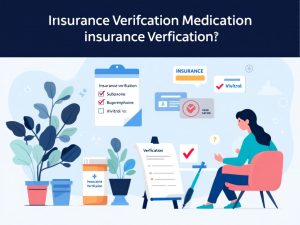You may find yourself facing both a substance use issue and an underlying mental health condition, or you may be supporting a loved one through the same struggles. This pairing of challenges is typically addressed through dual diagnosis treatment, a comprehensive form of care designed to treat co-occurring mental health disorders and substance use disorders at the same time. Instead of tackling each condition separately, both are approached in a holistic way. Research shows that an estimated 17 million U.S. adults had a co-occurring mental health disorder and substance use disorder in 2020 (Cleveland Clinic). Despite this high prevalence, many individuals continue to feel isolated and uncertain about the best path to recovery.
At Epic Health Partners, we understand the unique challenges you or your loved one may face when dealing with co-occurring disorders. Our aim is to provide a supportive environment where you have access to tailored treatment programs, comprehensive care, and individualized plans. In doing so, we equip you with the support necessary for lasting recovery. Below, you will find helpful information about what dual diagnosis involves, the value of an integrated approach, and the reasons Epic Health Partners is the right choice for your outpatient behavioral health, psychiatric, and substance-use care needs.
Understanding dual diagnosis
When you hear the term “dual diagnosis,” it refers to having both a mental health disorder and a substance use disorder at the same time. Mental health issues may include depression, anxiety, bipolar disorder, or posttraumatic stress disorder, among others. Meanwhile, substance use disorders can involve misuse of alcohol, opioids, or other drugs. Although it might seem logical to tackle each issue separately, research consistently reveals that addressing both conditions together leads to more sustainable results (American Addiction Centers).
Co-occurring disorders in context
Statistics compiled over the years highlight just how common co-occurring disorders are. In fact, some studies suggest that as many as 50% of individuals who seek help for a substance use disorder also have at least one other mental health disorder (Cleveland Clinic). The reasons vary:
- Shared risk factors may operate at biological, psychological, or social levels
- Individuals with mental health conditions might self-medicate using alcohol or drugs
- Substance misuse can alter brain chemistry, potentially leading to new or worsened mental health problems
Instead of attempting to parse out which issue came first, dual diagnosis recognizes the importance of addressing the full picture. If you struggle with both mental and substance use challenges, you deserve a holistic, coordinated approach that factors in every dimension of your well-being. This is especially pertinent if you have encountered trauma, major life stressors, or repeated relapses in the past.
Importance of integrated care
Overcoming co-occurring disorders is more complex than simply stopping drug or alcohol use or trying a one-size-fits-all therapy for mental health challenges. You benefit most when providers work together under a single, cohesive strategy. Studies confirm that continuing to treat mental health and substance use disorders separately can hamper progress and lead to higher relapse rates (PubMed Central). In contrast, comprehensive, integrated services coordinate mental health interventions with substance use rehabilitation, offering you a safer, more effective path toward lasting transformation.
Recognize co-occurring disorders
Identifying dual diagnosis involves recognizing overlapping symptoms and patterns of behavior. If you are unsure whether you or someone you love may have both a mental health issue and a substance use disorder, consider the following common indicators:
- Frequent changes in mood, from extreme highs and lows to chronic irritability
- Ongoing depression or anxiety that worsens when substances are misused
- Escalating alcohol or drug consumption to cope with negative emotions
- Regular episodes of substance use followed by feelings of guilt or shame
- Difficulty maintaining relationships, employment, or daily responsibilities
- Recurrent withdrawal symptoms paired with mental distress or panic
- Inability to reduce or control substance use despite serious consequences
Symptoms may not present themselves neatly, and co-occurring conditions can mask each other. For instance, you might attribute lethargy, poor concentration, or irritability solely to substance withdrawal when it could actually be linked to an undiagnosed mental health condition. Recognizing these interwoven factors is the first step in seeking help.
Screening and professional assessment
It’s essential to consult qualified professionals who can conduct a thorough screening and assessment. An effective evaluation might involve interviews, questionnaires, and discussions about your history of substance use, mental health symptoms, and family background (NCBI Bookshelf). Proper diagnosis lays the groundwork for tailored treatment plans that address your needs without fragmenting care. Failure to obtain a comprehensive evaluation can lead to missed or inaccurate diagnoses, resulting in treatments that do not fully work.
Barriers to early intervention
Many people endure these challenges alone for fear of stigma or shame. Some worry about judgment from healthcare providers, while others believe they must solve their problems on their own. Systemic barriers, like limits on diagnostic and billing options, or insufficient training among treatment providers, can further delay or complicate access to integrated services (PubMed Central). By seeking specialized help early, you avoid unnecessary pain and risks, such as homelessness, legal troubles, health complications, or suicidal thoughts.
Explore integrated approach
An integrated approach simultaneously tackles both the mental health aspect and the substance use aspect. This approach typically blends several evidence-based practices and support structures, ensuring that each dimension of your well-being is addressed. The result is a more unified and less fragmented experience, improving your odds of lasting, meaningful recovery.
Comprehensive treatment components
Effective integrated care includes a combination of therapy, medication, peer support, and psychosocial interventions:
- Medication management: Prescription medications might be used to treat mental health symptoms, reduce cravings, or ease withdrawal discomfort. If you need this support, medication management and medication assisted treatment mat can be critical parts of your recovery.
- Behavioral therapies: Strategies like cognitive behavioral therapy cbt, dialectical behavior therapy dbt, and motivational interviewing therapy teach healthy coping mechanisms and help you work through negative thought patterns.
- Holistic methods: Practices such as yoga or meditation often supplement more traditional treatments, providing comprehensive care that addresses both physical and emotional well-being.
- Support groups: Connecting with peers through group therapy mental health can foster a sense of camaraderie, reduce isolation, and encourage accountability when you feel vulnerable.
By combining these components, you receive a total care package focused on immediate and long-term growth. Moreover, this comprehensive approach ensures that neither mental health concerns nor substance use issues go untreated.
Integration at Epic Health Partners
At Epic Health Partners, we recognize the importance of synergy among medical, psychological, and social elements of care. Our team collaborates to provide you with coordinated services under one umbrella, simplifying an otherwise complicated process. Through our integrated philosophy, dual diagnosis treatment becomes less about juggling multiple providers and more about receiving truly unified care. If you need additional structure at any point, services like our intensive outpatient program iop or partial hospitalization program php can offer deeper support while still accommodating your need to maintain responsibilities outside of treatment.
Choose Epic Health Partners
You may wonder why Epic Health Partners stands out as a top choice for outpatient behavioral health, psychiatric, and substance-use care needs. Our organization is committed to excellence, reflecting our belief that every person deserves empathy, respect, and evidence-based interventions when it comes to addressing co-occurring disorders.
Our expertise and philosophy
We specialize in providing a supportive environment that acknowledges the unique challenges men and women face in their daily lives. Your personal or professional responsibilities no longer have to be a barrier. Because we operate on an outpatient model, you can maintain your routine, attend work or school, and care for family while working on your recovery. While some individuals require more intensive settings, outpatient programs deliver targeted assistance that fits your life.
Within our practice, we emphasize:
- Tailored treatment programs designed around your personal history, co-occurring disorder, and practical needs
- Comprehensive care that targets both mental health disorders and substance misuse
- Individualized plans created in partnership with you, ensuring that every aspect of your journey is respected and heard
- Ongoing support necessary for lasting recovery, incorporating follow-up, peer engagement, and relapse prevention strategies
Range of services
Epic Health Partners offers an array of outpatient services to meet your evolving needs. We begin with psychiatric evaluation outpatient and continue to guide you through potential therapy options, including individual therapy mental health, family counseling mental health, or specialized trauma informed counseling. If you have a pressing crisis, our comprehensive crisis services can intervene, ensuring your safety and stabilizing your immediate challenges.
We also understand that geographical or scheduling issues sometimes keep people from seeking help. In response, our telehealth therapy services and telepsychiatry services enable real-time support from the convenience of your home. These flexible, remote options let you attend appointments without sacrificing privacy or comfort.
Benefits of outpatient care
Choosing outpatient care may feel daunting at first, especially if you or a loved one is dealing with severe symptoms. However, an outpatient environment can offer tangible advantages that promote a balanced recovery.
- Flexibility: Outpatient programs provide greater scheduling freedom than inpatient stays. You can work around job obligations, family commitments, and personal responsibilities, immersing yourself in recovery without putting life on hold.
- Community reintegration: Outpatient treatment encourages you to apply newly learned coping strategies in real-life scenarios right away. You have regular opportunities to test, adjust, and reinforce these skills in your natural environment.
- Peer engagement: Whether you opt for group therapy mental health or peer support groups, connecting with others facing similar challenges can reduce feelings of isolation, boost motivation, and cultivate an atmosphere of mutual understanding.
- Gradual transition: For individuals stepping down from a more intensive setting, outpatient programs like intensive outpatient program iop or partial hospitalization program php help you gradually rejoin day-to-day life while still accessing thorough clinical support.
According to research, dual diagnosis outcomes improve significantly when individuals are able to maintain the support of an integrated care network as they transition back into their normal routines (NCBI Bookshelf). Outpatient care is particularly helpful in bridging this gap between professional supervision and everyday life, helping you stay connected to vital resources.
Fostering consistent progress
The biggest risk in recovering from co-occurring disorders is relapse or the unintentional neglect of one diagnosis in favor of the other. By participating in outpatient services, you remain consistently engaged with mental health professionals and addiction specialists. This continuity allows your care team to spot signs of potential relapse early, adjust medication as necessary, and modify therapeutic strategies. The ongoing communication and relationship building with providers also help foster trust, which studies pinpoint as a crucial ingredient in effective co-occurring disorder treatment (NCBI Bookshelf).
Use evidence-based therapies
Evidence-based therapies, bolstered by ongoing research and proven clinical efficacy, form the backbone of integrated care. When you enter a program that offers these therapies, you benefit from systematic approaches integrated into your treatment plan.
Cognitive-behavioral therapy
With cognitive behavioral therapy cbt, you learn to identify and confront automatic thoughts, triggers, and beliefs that perpetuate unhelpful behaviors. CBT teaches you to replace negative thought patterns with coping strategies for stress, cravings, and emotional regulation. This therapy helps you take progressive steps toward a healthier mindset, allowing you to address the roots of both your substance use and mental health issues simultaneously.
Dialectical behavior therapy
dialectical behavior therapy dbt emphasizes skill-building in four distinct areas: mindfulness, emotional regulation, distress tolerance, and interpersonal effectiveness. By balancing acceptance with change, DBT fosters self-awareness and resilience. This therapy can be especially helpful if you or your loved one consistently struggles with intense emotions or self-destructive actions during recovery.
Motivational interviewing
Motivational interviewing helps you explore ambivalence toward change, harness internal motivation, and develop clear goals. This approach acknowledges that mixed feelings are natural when you contemplate breaking free from old habits. With motivational interviewing therapy, you gain clarity about your priorities and how your life could improve by embracing a sustained recovery process.
Medication assisted treatment
For some individuals, the cycle of substance misuse ties directly to overwhelming withdrawal or cravings. In these cases, medication assisted treatment mat can offer an extra layer of stability, combining FDA-approved medications with counseling and behavioral therapies. From reducing opioid cravings to easing alcohol withdrawal, MAT supports a more secure transition to sobriety while you also address underlying mental health needs.
Begin your healing journey
Starting the journey to holistic wellness is often the most challenging step. The process demands emotional strength, openness to change, and the willingness to accept help. Remember that you are not alone. With the right support network and resources, you can find the relief and clarity needed to reclaim your life.
Personalized care planning
Before diving in, it’s essential to sit down with clinicians who can craft an individualized plan. At Epic Health Partners, we evaluate your psychiatric history, substance use patterns, and personal goals. Through this discussion, you collaborate with experienced professionals to design a recovery roadmap, often including a combination of behavioral therapies, medication management, relapse prevention planning, and aftercare planning.
Addressing relapse and aftercare
Relapse is a realistic concern for anyone working toward recovery. But with consistent care and open communication, it can be mitigated. If you ever find yourself slipping, it doesn’t mean you have failed—it simply indicates a need for renewed attention to supportive tools, whether it be an increased frequency of therapy sessions, medication adjustments, or involvement in specialized programs like substance use outpatient therapy. Our team is here to walk alongside you, offering continued support and adjustments as your recovery unfolds.
Continuum of support
Your journey doesn’t end the moment acute symptoms subside. On the contrary, long-term maintenance is essential for people dealing with co-occurring conditions. Our co occurring disorders treatment approach is specifically designed to ensure you have a continuum of supportive interventions. This might include group therapy mental health, ongoing coaching, or reengaging with intensive services if necessary. By emphasizing ongoing relationships with our care team, we help you cultivate the resilience that is vital to enduring wellness.
Answer five common questions
1. How do I know if I need dual diagnosis support?
If you experience a mix of mental health symptoms and substance misuse, or notice that one set of symptoms worsens the other, you could benefit from integrated care. Signs include persistent mood swings, withdrawal, increased isolation, or an inability to break addiction patterns even though you recognize harmful consequences. A formal evaluation with trained professionals is the best way to confirm whether you need treatment for co-occurring disorders.
2. Can outpatient care really meet my needs if I have severe symptoms?
Yes. While some individuals thrive in an inpatient or residential setting, outpatient care has advanced significantly to accommodate a range of severity levels. Programs like our intensive outpatient program iop and partial hospitalization program php offer significant support and structure, including multiple therapy sessions each week, medication management, and continuous monitoring. If your needs ever change, your care plan can be adjusted step by step.
3. Will I need medication for mental health or substance use issues?
Medication needs vary greatly from person to person. A comprehensive assessment determines whether medication could help you regulate your mood, mitigate cravings, or manage withdrawal symptoms. If so, medication management and medication assisted treatment mat can be integrated into your plan. You are encouraged to discuss any concerns or preferences with your treatment team.
4. Does having a co-occurring disorder mean I’ll never fully recover?
Not at all. Co-occurring disorders can be effectively managed alongside one another, especially through a holistic and integrated approach. Recovery is unique to each person. It can involve lifestyle changes, sustained therapy, and periodic adjustments in medication or counseling. With proper support, many individuals go on to lead fulfilling lives free from the limitations they once experienced.
5. How does Epic Health Partners ensure continuity of care?
We believe that dual diagnosis treatment is most effective when delivered through unwavering support. That’s why we follow a continuum of outpatient services, from initial psychiatric evaluation outpatient to ongoing therapies that adapt to your evolving needs. Should you ever need more or less support, we can refer you to different levels of care within our network. Our professionals collaborate to make sure all aspects of your treatment align with your schedule and personal goals.
By addressing both the mental health and substance use aspects of your condition, you set a strong foundation for a healthier, more satisfying life. Whether you are seeking help for yourself or supporting a loved one, integrated programs at Epic Health Partners can provide the tools, empathy, and expertise you need. We strive to foster a supportive environment by combining tailored treatment programs, comprehensive care, and individualized plans that guide you toward lasting recovery.
Remember, you do not have to face co-occurring disorders alone. When you are ready to take that step forward, we encourage you to explore our wide range of outpatient programs. With effective dual diagnosis care, you or your loved one can regain control, nurture both mental and physical well-being, and finally experience the hope that accompanies true healing.







